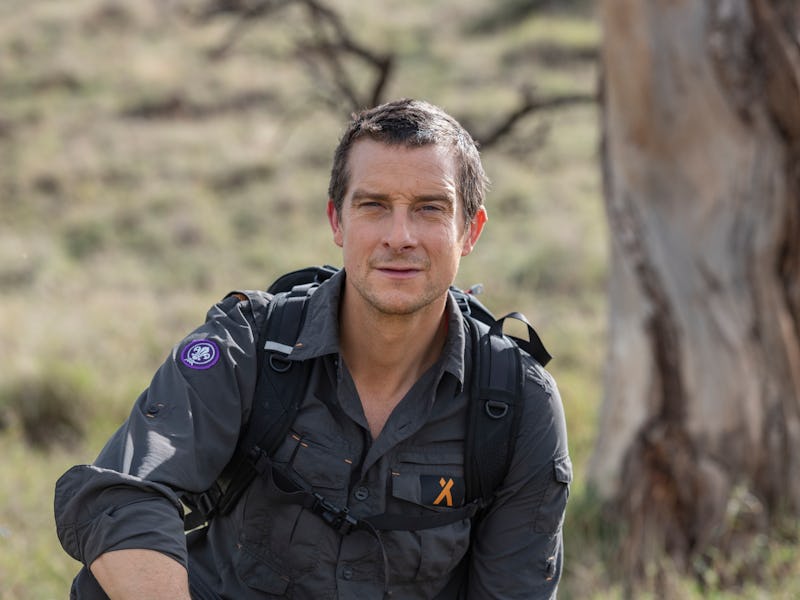Bear Grylls Says He's Just as Mortal as Anyone Else
Grylls, host of 'Hostile Planet', on Nat Geo, reacts to his unkillable rep.

Television survivalist and noted pee-drinker Bear Grylls has built a career on his ability to stay alive in the most extreme environments on the planet. Grylls, the kind of guy who instinctively sleeps inside a deer corpse to stay warm, seems impossible to kill.
In hosting the six-part documentary mini-series, Hostile Planet, which airs its finale Monday, even the ex-British Special Forces serviceman was cowed by nature.
"Trust me, I’m just as mortal as anyone else!"
“Trust me, I’m just as mortal as anyone else!” Grylls tells Inverse when asked what he thinks about his near-mythic status as an unkillable adventurer.
Earlier this spring, viewers of a different Grylls show on Netflix, You vs. Wild, tried and failed to kill him. The interactive, “choose-your-own-adventure” series saw viewers control Grylls’s actions in different situations, with many picking what they thought was the worst option.
On Hostile Planet, Grylls is out of the viewer’s control, and the focus is back on the animals.
“[I’m] not braving the wild the way these animals are on a daily basis,” he says. “They are the real heroes of this show.”
Meltwater channels on the sea ice in the island of Svalbard makes hunting increasingly difficult for polar bears.
Hostile Planet bares what many of us are afraid to see: the fact that nature doesn’t care whether anything lives or dies, even though we do.
It’s not pretty, but there’s no reason we should expect it to be. In the clip from the finale, “Polar,” below, traveling penguins risk exposing their eggs to the savage Antarctic cold. It’s a given that many chicks will wind up dead in the shell. That’s just how it is.
But what Grylls wants viewers to realize is that the horror they feel in those moments is only going to be compounded as climate change turns up nature’s hostility to an unprecedented degree.
“The animals are doing what they must do to survive the brutal side of Mother Nature, but it’s also important to remember there’s an awe-inspiring beauty to their resilience — these species show us how they’re able adapt to the worst environments at the worst of times, and still survive,” he says.
"Humans are hostile for greed, animals purely for survival."
Featured in “Polar” alongside the penguin chicks are polar bears that are turning to belugas as a substitute for increasingly unavailable seal meat. They, like Grylls, are master survivors, adapting to what is available around them. All animals alive today have evolved to survive some degree of natural hostility. But what’s different now is that climate change is making their already-precarious situations even more challenging by adding the element of unpredictability. Bears can switch to whale meat as an alternative, but what happens when the belugas themselves stop showing up?
An international report released Tuesday revealed that a million species are at risk of extinction because of climate change. Grylls seems to concede the title of “master survivalist” to these animals, but only one species takes the crown for selfish hostility. “Humans are hostile for greed,” he says, “animals purely for survival.”
The Hostile Planet finale airs at 9 p.m. Eastern, Monday, May 6 on National Geographic.